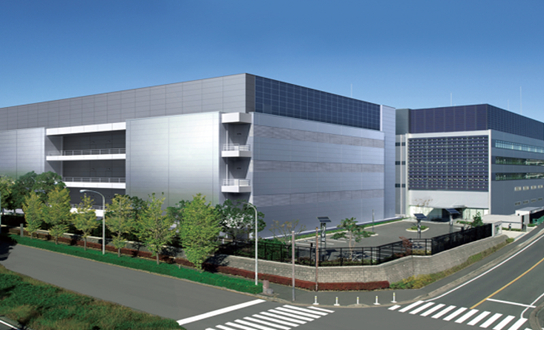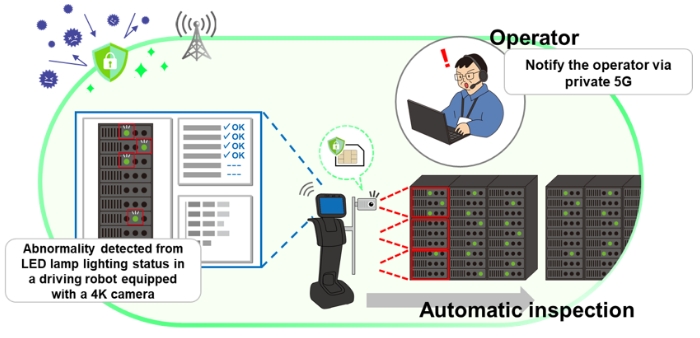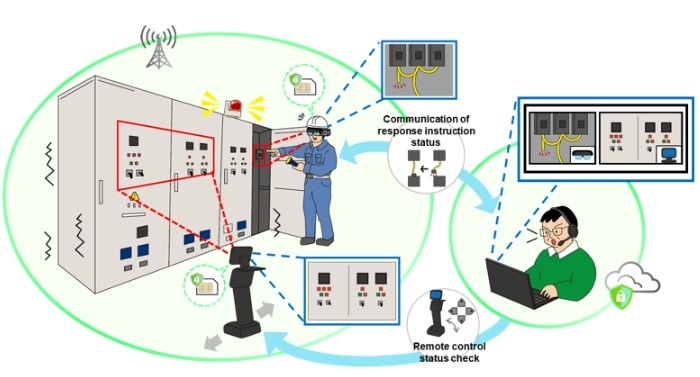Fujitsu Limited will embark on a series of field trials together with Fujitsu Research Institute Limited at its Yokohama Data Center, aiming to promote the digital transformation of data centers, boosting operational resilience and process automation by utilizing private 5G network technology for equipment inspection. This verification trial, which will run from December 1, 2022 until March 17, 2023, was selected by Japan’s Ministry of Internal Affairs and Communications as one of its “Development Demonstrations Aimed at Achieving Challenge-Solving Local 5G in Fiscal 2022.”
The trial will involve the use of a robot equipped with a 4K camera to capture video data of equipment at the data center, including servers. This data will be transmitted locally by private 5G and a system will be established to analyze on-site conditions with AI to detect any abnormalities at an early stage. Fujitsu aims to create a system that can support the monitoring of conditions on the ground and recovery work even from a remote location in the event of a disaster or emergency by taking full advantage of the high-speed transmission capabilities of private 5G technology.
Robust disaster management for resilient data centers to support digital society
As the digitization of society accelerates and the amount of data distributed rapidly increases, data centers that store and process vast amounts of data are positioned as part of the core infrastructure that supports the digital society of the 21st Century. Highlighting this growing significance, the Japanese government’s vision for a “Digital Garden City Nation” calls for the establishment of regional data center facilities with an eye to reducing the risk posed by disasters and other vulnerabilities resulting from the centralization of data centers. As the importance of regional data centers continues to grow, their number is expected to increase rapidly in the future.
The key to stable data center operations is high-quality maintenance and inspection and rapid recovery in the event of a disaster or other emergency. However, the decrease in the working population and difficulties in securing talent remains a challenge in many parts of Japan, and this shortage is especially acute in rural areas. Maintaining and improving inspection quality with a limited number of personnel and reducing workload represent an urgent issues for data center operators.
Trial Outline
Fujitsu will build a private 5G environment at its data center in Yokohama City, Kanagawa Prefecture, and verify the effectiveness of autonomous robots equipped with 4K cameras for patrolling equipment and facilities, make early detection of abnormalities, and offer remote support for field workers in the event of a failure.
-
Location
Fujitsu Yokohama Data Center, Yokohama City, Kanagawa Prefecture, JapanImage Credit: Fujitsu Yokohama Data Center -
Trial Period
December 1, 2022 – March 17, 2023 -
Trial Overview
-
Study on creation/implementation of private 5G utilization model (Challenge Trial)
A robot equipped with a 4K camera performs unmanned patrol monitoring to detect abnormalities in the operating status of server equipment (LED lamp lighting status) and promptly notifies the operator via the private 5G network in the event of any abnormality.- Remote support for system recovery work through video and audio transmission using private 5G
- Detection and blocking of unauthorized communications in data centers handling highly sensitive data
Image Credit: Fujitsu | Patrol monitoring of equipment by a robotImage Credit: Fujitsu | Remote assistance for recovery work in the event of a disaster or other emergencies -
Technical study on radio wave propagation characteristics of private 5G (technical demonstration)
A flexible area construction method utilizing a DAS antenna (1) will be used to construct a private 5G area network in a server room with a low ceiling and many tall barriers and in an electric room with high-voltage cables laid on the ceiling and the effects of radio wave propagation will be measured.- Radio Propagation Measurement and Performance Evaluation (4.8 ~ 4.9 GHz band indoor)
- By refining the calculation formula parameters specified in the area calculation method specified in the current Radio Law-related examination standards, contributing to the efficiency of area design in the development to other sites
-
-
Division of roles
Fujitsu Limited: Development and demonstration system construction, demonstration evaluation, and consideration
Fujitsu Research Institute Limited: Project promotion support and planning support for future horizontal development
Fujitsu plans to utilize the knowledge gained from this trial to implement similar systems in its own data centers and by providing the results of its efforts as a solution to other data center operators, contribute to the development of resilient social infrastructure that supports the Japanese government’s vision for a Digital Garden City Nation.






















